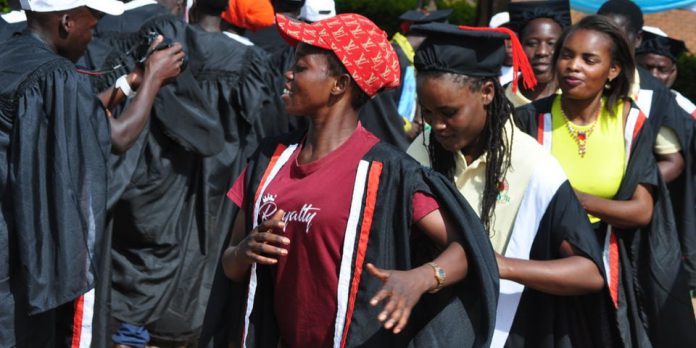The joint survey carried out by the local Non-Governmental Organizations (NGOs) operating in Zombo district in Uganda revealed that 65 percent of 100 youths can’t read and write due to early dropout of pupils from school in the district.
The independent survey was carried out by a team of NGOs in the district where Life Concern (LICO), Community Empowerment for Rural Development (CEFORD), and Nebbi –NGO-Forum were involved in the survey in a bid to mobilize the communities to embrace education.
The Executive director of LICO, Emmy Kizito Kakura said, LICO has organized short-term courses to equip some of the uneducated youths as the beneficiaries in skills development for future benefits but still, the youth needs to be equipped with machines for value addition.
Read More: 21 people die in bus crash on Kenya -Uganda border
“We have over 60 youths who graduated in various courses like tyre repair, tailoring, bakery and hairdressing, and videography for six months but they lacked machines to boost their skills,” Kakura said.
According to the Resident District Commissioner (RDC) Zombo district, Pius Alitema, since the children drop out of school at an early stage, youths in the district are unable to read and speak simple English.
He said from P.1-P.2 the number of children enrolled in schools in the district is overwhelmed but by the time they reach P.7, the number reduces to 20 pupils in a class meaning that there’s a high dropout rate in the district.
“We are experiencing the high dropout rate at around P.3 and P.4 and this is a big challenge to the entire country if this is not addressed, the future of the children will be doomed,” Alitema said.
He added that, though the government has designed mechanisms for skilling the youths, the youth are so reluctant to adopt the initiatives due to the high illiteracy rate.
The District Community Development Officer Zombo district Samuel Ocaki attributed the high dropout rate in the district to increased crimes among the youths and that the ones leading in committing the crimes are the juveniles who have dropped from schools.
“The unemployed youths in the district don’t complete P.7 and that’s why they end up sitting by the roadsides without any productive work,” Ocaki said.











![WEIRD!!! Wife Caught With Her Dead Husband’s Bones in Luggage At German Airport [Read Up]](https://newsafricanow.com/wp-content/uploads/2020/08/4-1-100x70.jpeg)
